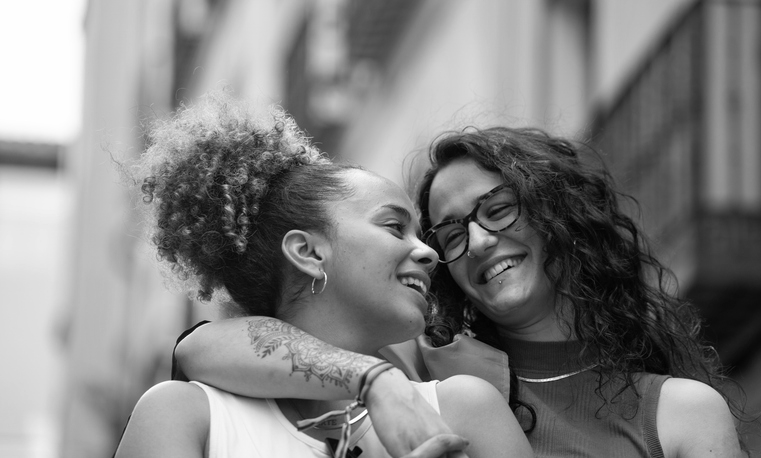A history of community and cultural significance
The New York Big Apple Roundup is one of the longest-running LGBTQ+ sober conferences in the U.S. Founded in 1980, the Roundup was a safe, welcoming conference that welcomed 12-Step members to New York City over the Thanksgiving weekend. Traditionally, the event would kick-off with a BIG meeting on Thanksgiving evening. Hundreds would often be in attendance to listen to three speakers share their experience, strength and hope.
After the last speaker, “The Countdown” would begin. Everyone would stand up, and then year by year, people would sit when their sobriety time was called. Eventually, only one or two people were left standing, with decades of sober years. It was an exhilarating, fun and encouraging moment that ended in a huge explosion of applause, tears and laughter.
The Big Apple Roundup continued for years, but in 2019, the Roundup in New York City wound down and was discontinued.
“It made me proud to be both sober and gay.”
“I used to think sobriety meant becoming ‘respectable’—toning down my flamboyance, my past, my queerness. But at the Roundup, I saw people fully themselves: sober, loud, tender, glitter-covered, and deeply spiritual. That was the weekend I realized I didn’t have to shrink to stay sober.”
— Damon, 37, 6 years sober
Timeline
There is not a great deal of recorded history documenting the Big Apple Roundup. Below is a general listing. We welcome any information members have about Roundups they attended.
1980, Nov 27–30. First “Gay Big Apple Round‑Up”, listed in Box 459, the quarterly news bulletin published by AA’s General Service Office; also, the formation of a temporary council for gay & lesbian AA (later GaL‑AA/IAC).
1983, Big Apple Roundup meetings included signing for deaf members.
1989, “10th Big Apple Roundup” listed, confirming annual continuity from 1980.
2000s, limited evidence from Box 459 resources in this period; listings continued annually over Thanksgiving in early 2000s.
2012,Nov 22–24. “Big Apple Roundup” held at The Center, 208 W 13th St, New York; listed in Box 459 and AA Grapevine.
2016, organizers announced the shift from Thanksgiving to Pride Weekend, after 30+ years on Thanksgiving.
2019, the last Roundup before dissolution.
2025, Nov 21–22. The Roundup returns to NYC!
“It reminded me why I stay.”
“I’ve been sober a long time. Sometimes I drift from meetings or get caught up in work. But the Roundup reminds me why I stay in AA: the connection, the love, the sense of service. Every time I attend, it’s like I hit a spiritual reset.”
— Pat, 56, 28 years sober
Organization & Affiliation
While the Roundup is not officially part of Alcoholics Anonymous World Services, it closely adheres to AA’s 12 Traditions and is run by a steering committee of trusted servants—LGBTQ AA members who rotate roles annually.
It’s a nonprofit endeavor, often run on suggested donations and sliding-scale registration fees. Scholarships are available to ensure no one is turned away due to lack of funds.
The Roundup sometimes collaborates with:
Al-Anon LGBTQ groups
Sober LGBTQ clubs (e.g., The Loft, The Phoenix)
HIV/AIDS wellness organizations
Queer and trans advocacy groups within recovery
“I found my sponsor at the Roundup.”
“I’d bounced around meetings for a few months, always listening but never connecting. Then I went to a workshop at the Roundup about intimacy in recovery. Something clicked. After the meeting, I spoke to one of the panelists, and she later became my sponsor. She was the first queer woman I’d met who talked about trauma and recovery with such honesty. That weekend changed the course of my sobriety.”
— Dana, 26, 1 year sober



